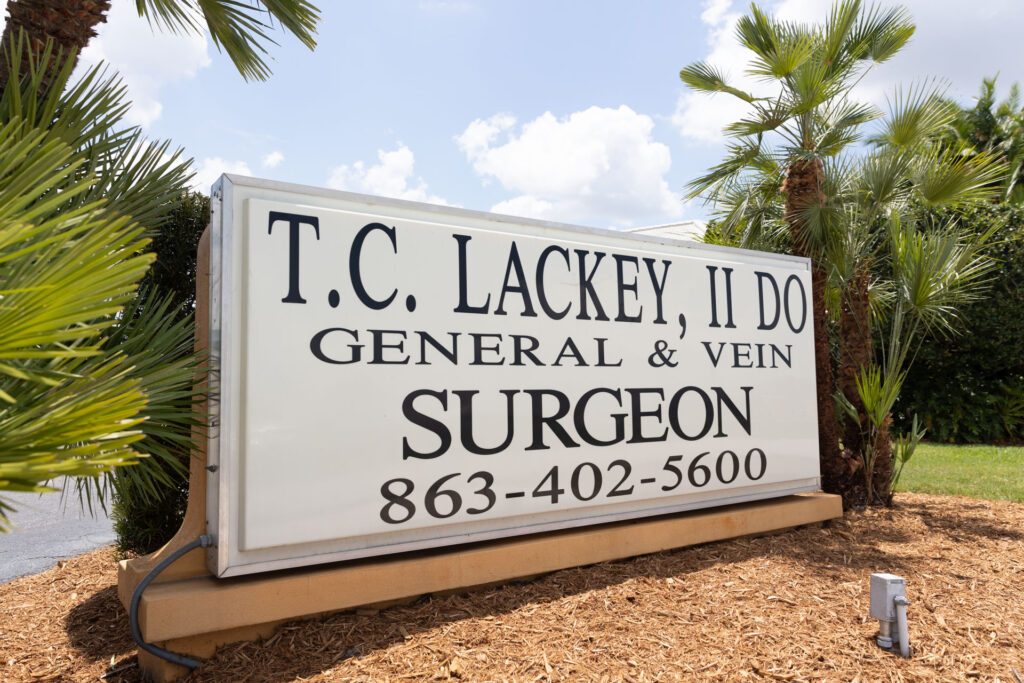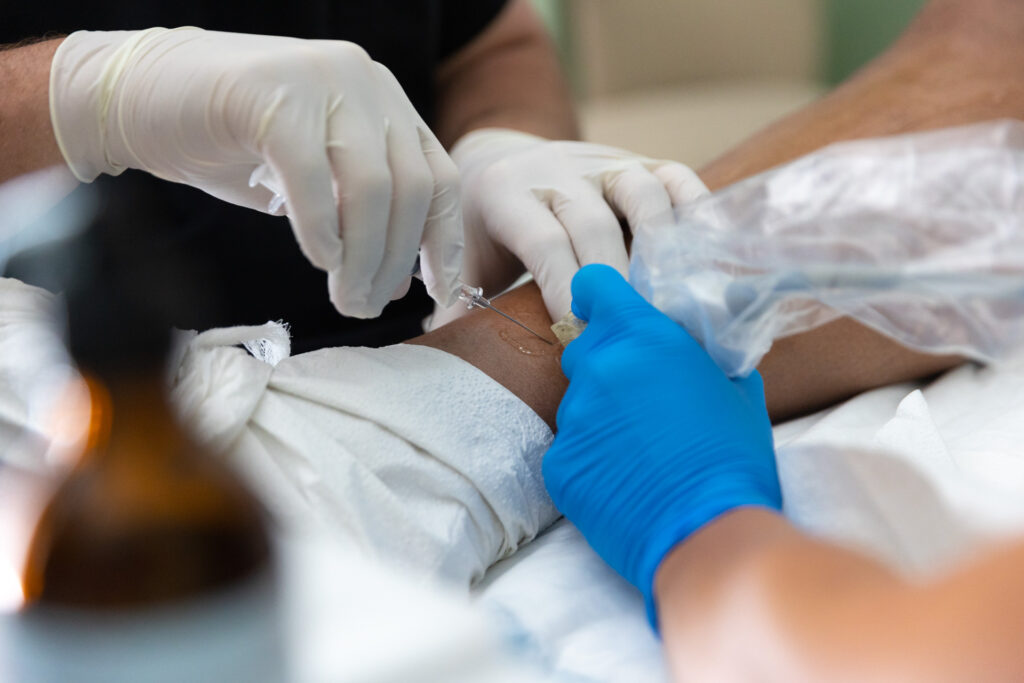
Maybe you noticed a raised vein that seems more visible than it once was, and it feels tender when you touch it. Or maybe your ankles feel heavy and swollen at the end of the day.
Experiencing symptoms like these could indicate chronic venous insufficiency (CVI).
While CVI itself is not life-threatening, it can lead to unpleasant symptoms that begin to affect your daily activities and keep you from doing what you love.
Keep reading to understand what this medical condition means, the associated symptoms, and how we treat chronic venous insufficiency in Sebring at Florida Lakes Vein Center.
What is chronic venous insufficiency?
Veins in the leg and other parts of the body use one-way valves to help direct blood flow. Blood travels upwards, working against gravity, and the valves keep it moving in the right direction. However, blood can get stuck, move slowly, or put excess pressure on the valves, causing damage.
This valve damage causes veins to malfunction, which leads to chronic venous insufficiency, or impaired blood flow.
What causes chronic venous insufficiency?
Anything that affects the valves in your veins can cause chronic venous insufficiency. Vein damage can develop from medical conditions or other factors that cause changes and reduce valve effectiveness.
You may be at risk of chronic venous insufficiency if you:
- Are overweight
- Have a family history of the disease or blood clots, like deep vein thrombosis
- Experienced an injury, surgery, or a blood clot that damaged the veins
- Sit or stand for long periods, which raises blood pressure
- Smoke cigarettes
What are the symptoms of chronic venous insufficiency?
The symptoms of chronic venous insufficiency do not all appear at once; usually, they progress as the condition does.
- If you experience the following, you may have chronic venous insufficiency:
- Tired, achy, or sore legs
- A tingling or “pins and needles” sensation in the legs
- Discolored skin that appears red or brown
- Swelling in the lower legs and ankles, especially at the end of the day
- Itchy and dry skin on your legs or feet
- Other vein conditions
What are the options to treat chronic venous insufficiency?
If you have concerns about chronic venous insufficiency or you have noticed the symptoms, come to Florida Lakes Vein Center for advanced treatment options.
Our minimally invasive, nonsurgical treatments can reduce leg discomfort and pain while improving the appearance of visible veins.
We use sclerotherapy, VenaSeal, and Varithena to seal off problematic veins with precise injections. They reduce the risk of further complications, like deep vein thrombosis or ulcers, and they prevent chronic venous insufficiency from getting worse.

CVI Doesn’t Have to Hold You Back | Request a Screening
At Florida Lakes Vein Center, our team of experts understands how irritating and uncomfortable vein issues can be. While some vein concerns are purely cosmetic, you should always speak with a vein specialist about any symptoms to protect your long-term vein health.
Whether you want to reduce surface-level spider veins or you are seeking DVT treatment, start your journey to healthier legs with us. Request a free vein screening for chronic venous insufficiency in Sebring, FL.